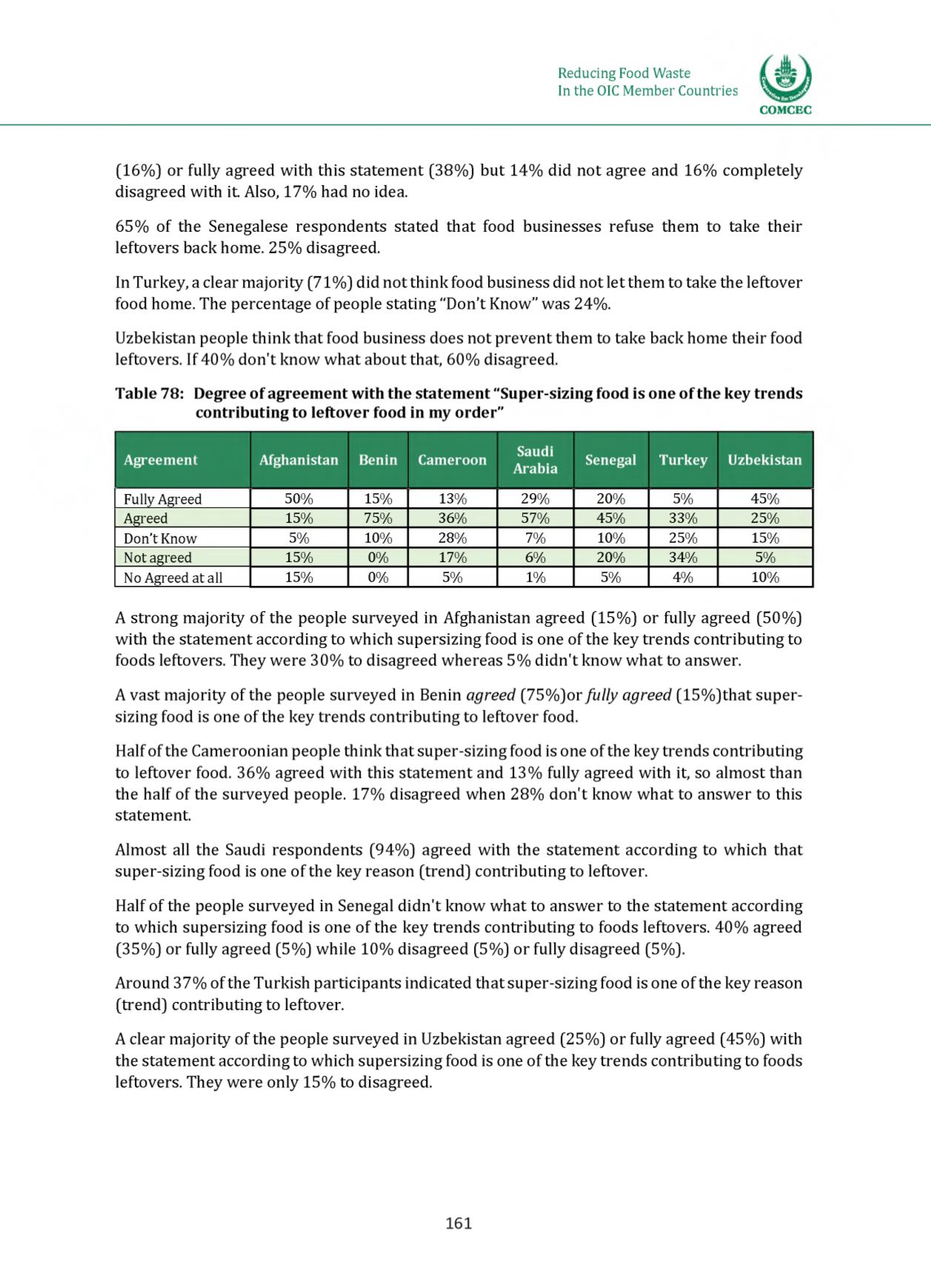

COMCEC
Reducing Food Waste
In the OIC Member Countries
(16%] or fully agreed w ith this statement (38% ) b u t 14% d id n o t agree and 16% completely
disagreed w ith it. Also, 17% had no idea.
65% of the Senegalese respondents stated tha t food businesses refuse them to take their
leftovers back home. 25% disagreed.
In Turkey, a clear majority (71% ) d id n o t th in k food business did no t let them to take the leftover
food home. The percentage of people stating “D on’t Know ” was 24% .
Uzbekistan people th in k tha t food business does no t prevent them to take back home their food
leftovers. If 40% don 't know w h a t abou t that, 60% disagreed.
Table 78: Degree o f ag reem en t w ith the statem en t "Super-sizing food is one o f the key trends
con trib u ting to leftover food in my o rde r”
Agreement
Afghanistan Benin Cameroon Saudi
Arabia Senegal
Turkey Uzbekistan
Fully Agreed
50% 15% 13% 29% 20% 5%
45%
Agreed
15% 75% 36%
57% 45% 33% 25%
Don’t Know
5%
10% 28%
7% 10% 25%
15%
Not agreed
15%
0% 17%
6% 20% 34%
5%
No Agreed at all
15%
0%
5%
1%
5% 4%
10%
A strong m ajority o f the people surveyed in A fghanistan agreed (15%] or fully agreed (50% )
w ith the statement according to which supersizing food is one of the key trends contributing to
foods leftovers. They were 30% to disagreed whereas 5% d id n 't know w h a t to answer.
A vast m ajority of the people surveyed in Benin
agreed
(75% )o r
fu lly agreed
(1 5% )th a t super-
sizing food is one of the key trends contributing to leftover food.
Half of the Cameroonian people th ink tha t super-sizing food is one of the key trends contributing
to leftover food. 36% agreed w ith this statement and 13% fully agreed w ith it, so alm ost than
the ha lf of the surveyed people. 17% disagreed when 28% do n 't know w h a t to answer to this
statement.
A lmost all the Saudi respondents (94% ) agreed w ith the statement according to which tha t
super-sizing food is one o f the key reason (trend] contributing to leftover.
Half of the people surveyed in Senegal d id n 't know w h a t to answer to the statement according
to which supersizing food is one o f the key trends contributing to foods leftovers. 40% agreed
(35% ) or fully agreed (5% ) while 10% disagreed (5% ) or fully disagreed (5% ).
A round 37% of the Turkish participants indicated tha t super-sizing food is one o f the key reason
(trend) contributing to leftover.
A clear majority of the people surveyed in Uzbekistan agreed (25% ) or fully agreed (45% ) w ith
the statement according to which supersizing food is one o f the key trends contributing to foods
leftovers. They were only 15% to disagreed.
161
















